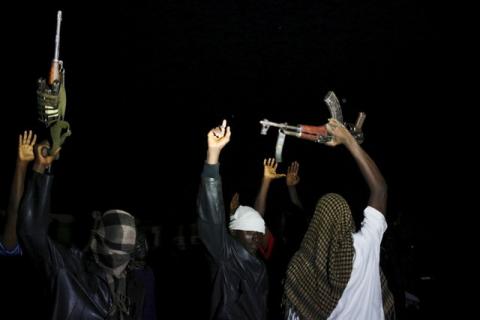Advertisement
Burundi suspends 10 civil society groups as crisis deepens
NAIROBI (Reuters) - Burundi's interior minister has suspended the operations of 10 civil society groups, accusing them of fuelling widespread violence in recent months, a senior official said on Tuesday.
The United States criticised the move in the small central African nation, which slid into crisis after a decision by President Pierre Nkurunziza to seek a third term in a disputed July election.
World power and regional nations worry Burundi could slide back into an ethnic conflict like its 12-year civil war that ended a decade ago. Armed vigilantes now often patrol the capital at night, the latest sign of a collapse in security.
Terence Ntahiraja, the permanent secretary in the interior ministry, told Reuters by phone that the 10 groups, most of them led by prominent civil rights defenders who have fled into exile, were found to have been supporting troublemakers.
"Investigations have revealed their involvement in disturbing security in the country," he said, adding the groups will be given a chance to defend themselves and those found to be innocent will be allowed to restart operations.
The groups include APRODH (Association for the Protection of Human Right and Detained Persons), led by Pierre Claver Mbonimpa, who survived an assassination attempt in August.
The groups, which led the protests against Nkurunziza's bid for a third term of office, had earlier seen their bank accounts, and those of their leaders, frozen by Prosecutor General Valentine Bagorikunda.
In a statement, the United States expressed "deep disquiet and concern" about the suspension of the groups.
"These actions further limit Burundians’ freedoms of assembly and expression and represent a clear step backwards in the pursuit of peace and dialogue in Burundi," it said, calling for the decision to be reversed "without delay".
The United States said on Monday it would sanction four current and former Burundi government officials, including the minister of public security, over their role in ongoing violence in the country.
Hundreds have been killed in political violence in Burundi since April and 217,000 have fled to surrounding countries, raising fears of slide into ethnic conflict in a region where memories of the 1994 genocide in neighbour Rwanda remain raw.
The ethnically charged civil war that ended just a decade ago killed 300,000 people.
(Writing by Duncan Miriri and Edmund Blair; Editing by Mark Heinrich)



















Add new comment